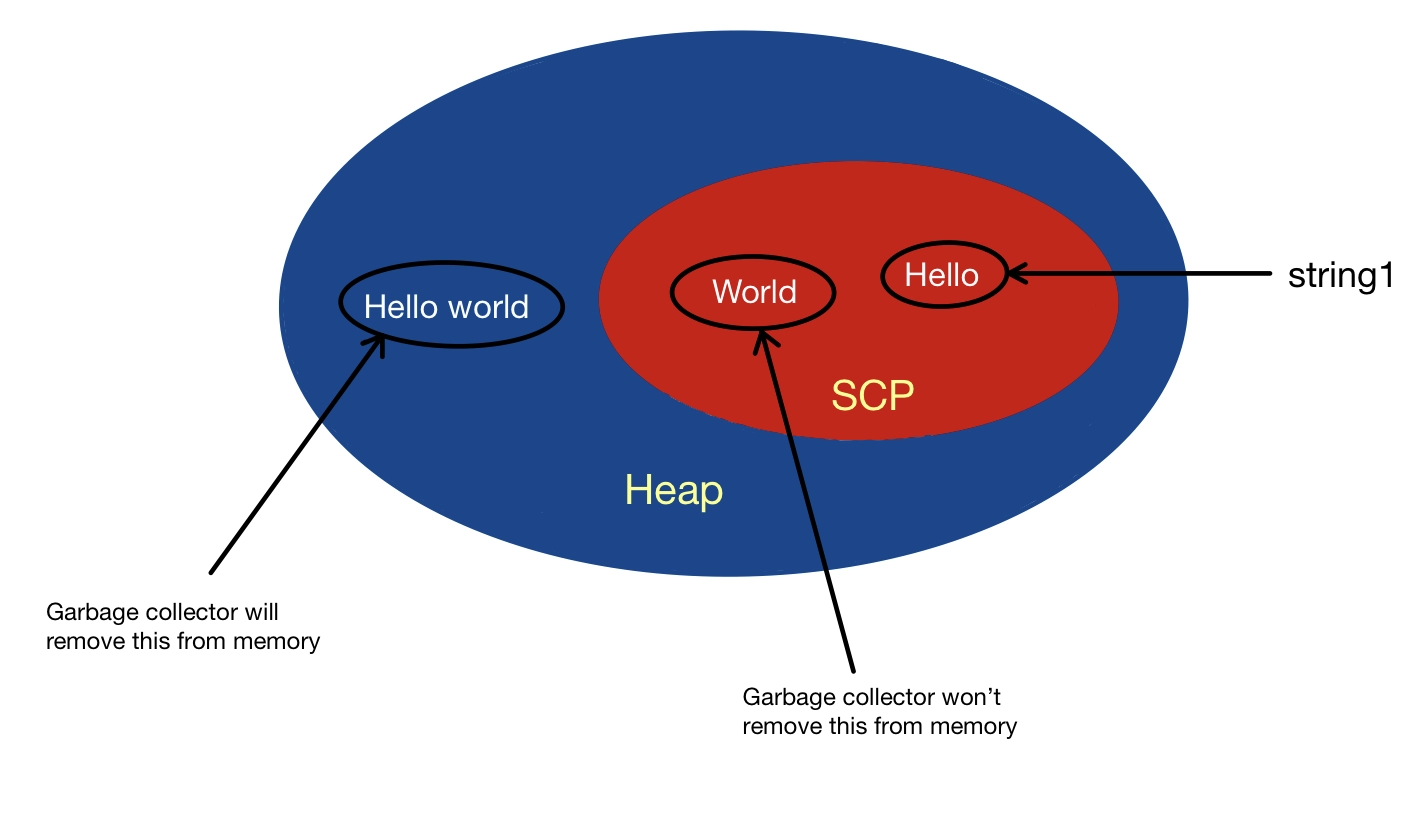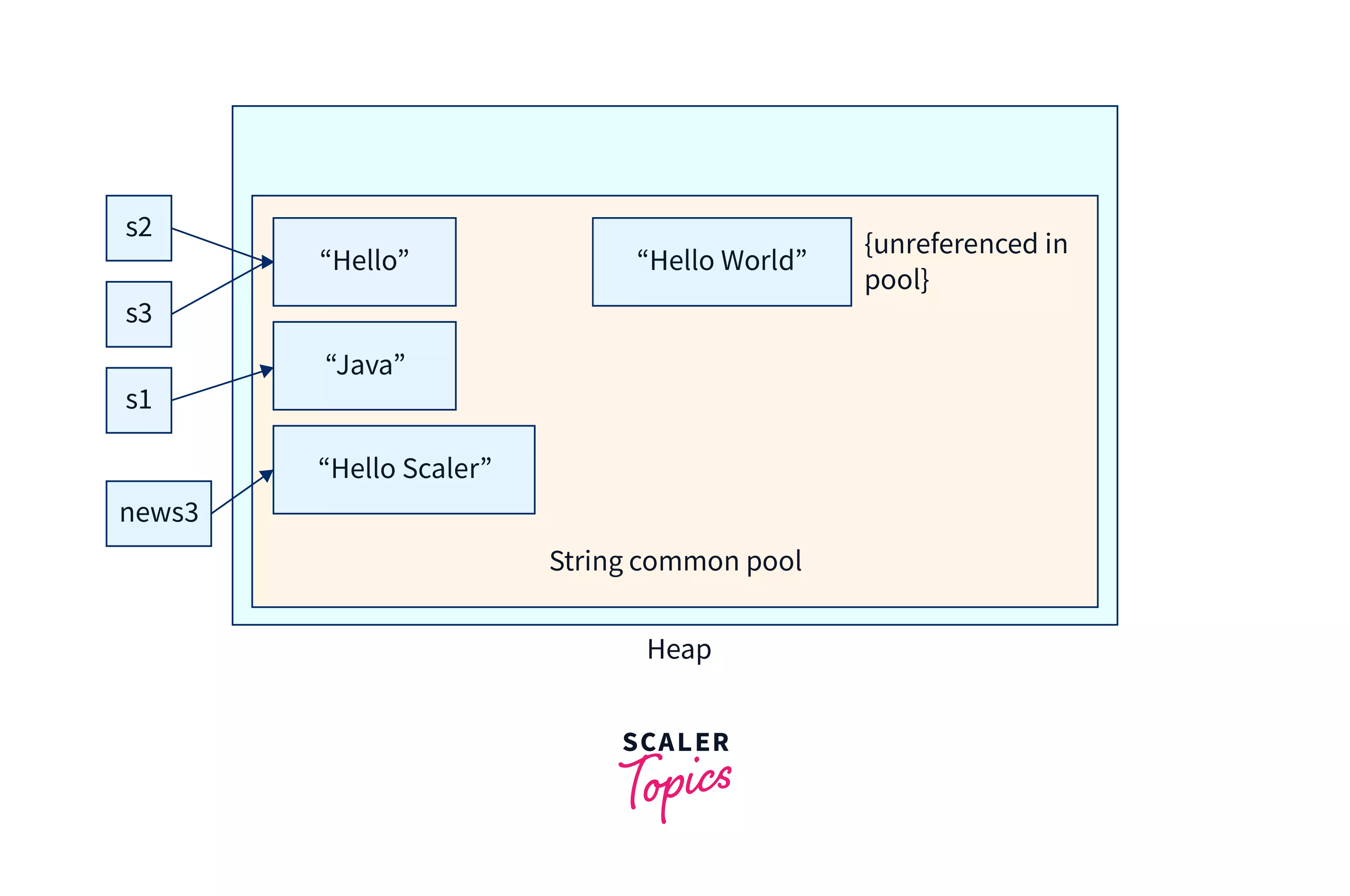Why Are Strings Immutable in Java? Comprehending the Core Concepts
Why Are Strings Immutable in Java? Comprehending the Core Concepts
Blog Article
What Is Immutable Strings and Exactly How It Works
In the realm of programming, comprehending the concept of immutable strings is paramount for creating robust and safe applications. Immutable strings describe strings that can not be modified after they are developed, ensuring information stability and predictability within the code. This fundamental principle plays an essential function in different programming languages and provides an one-of-a-kind approach to taking care of data. By exploring the details of exactly how immutable strings operate, one can discover a world of benefits and possibilities that can boost the high quality and performance of software program development.
The Fundamentals of Immutable Strings
Immutable strings, as an essential concept in shows, are personality series that can not be altered as soon as they are developed. This implies that as soon as a string is assigned a worth, that value can not be modified. In languages like Python and Java, strings are immutable items, resulting in different ramifications in regards to memory administration and data honesty.
One of the crucial advantages of unalterable strings is that they supply a sense of security in information manipulation. Considering that the material of an immutable string can not be customized, it makes certain that the original information continues to be undamaged, lowering the threat of unintentional adjustments throughout program execution (Why are strings immutable in Java?). This property also simplifies debugging processes, as developers can trust that once a string is specified, its value will not be accidentally changed
When a brand-new string is created based on an existing one, instead than changing the original string, the brand-new value is stored individually. On the whole, understanding the fundamentals of immutable strings is crucial for mastering shows ideas and optimizing code effectiveness.
Benefits of Immutable Strings
Structure upon the safety and security and performance benefits of unalterable strings, their benefits prolong to improving code dependability and simplifying concurrent shows tasks. By being unalterable, strings can not be changed after creation, which gets rid of the threat of unexpected adjustments in the data they store. This inherent immutability ensures that when a string is created, its worth continues to be consistent throughout the program's execution, decreasing the possibilities of bugs triggered by unexpected changes.
In addition, immutable strings add to code dependability by making it simpler to reason about the state of a program. Since strings can not be changed, programmers can trust that a string will certainly always hold the same value, simplifying debugging and maintenance initiatives. This predictability results in extra steady and reputable codebases.

Execution in Programs Languages
Within different programs languages, the unification of unalterable strings is a fundamental facet that influences how information is dealt with and manipulated within code structures. The application of unalterable strings differs throughout different programs languages, with each language offering its own mechanisms to support this principle.

On the other hand, languages like C and C++ do not have integrated support for unalterable strings. Developers in these languages have to by hand execute immutability by implementing rules within their code to stop direct adjustments to string items.
Ideal Practices for Working With Immutable Strings
When managing immutable strings in programs languages like Java and Python, sticking to ideal practices guarantees safe and efficient information manipulation. One of the key finest practices is to use StringBuilder or StringBuffer as opposed to directly adjusting strings, especially when dealing with substantial concatenation operations. These classes supply mutable alternatives for string adjustment, assisting to stay clear of unnecessary memory appropriations and improving performance.
One more finest technique is to utilize string interpolation or format operates offered by the language as opposed to hands-on concatenation. This not just improves readability but likewise help in protecting against typical mistakes such as unintentional string modifications. Furthermore, when dealing with sensitive information such as passwords or API keys, it is vital the original source to prevent storing them as plain message in immutable strings. Utilizing safe storage systems like char varieties or specialized collections for dealing with sensitive details assists mitigate safety threats linked with immutable strings.
Real-world Applications and Instances
Checking out practical implementations of unalterable strings in various markets reveals their significant effect on data integrity and system dependability. In the medical care sector, unalterable strings play a critical duty in making sure the protection and discretion of client information. By avoiding unapproved adjustments to delicate details such as medical documents and prescriptions, unalterable strings aid keep compliance with stringent privacy guidelines like HIPAA.
Economic establishments additionally benefit from the immutable nature of strings to enhance the safety and security of customer data and transaction records. Immutable strings help stop scams and unapproved changes to monetary information, providing a robust defense against cyber hazards and making certain the depend on and self-confidence of clients.

Conclusion
In conclusion, unalterable strings are taken care of and stable series of characters that offer advantages such as thread safety and improved efficiency in programs. They are implemented in numerous programs languages to ensure information integrity and security. Best techniques for functioning with immutable strings include staying clear of straight alterations and utilizing approaches that return new string objects. Real-world applications of immutable strings include data file encryption, caching, and string adjustment jobs.
Immutable strings refer to strings that can not be altered after they are developed, making certain data honesty and predictability within the code. When a brand-new string is developed based on an existing one, instead than changing the original string, the brand-new value is stored independently.In languages like Java and Python, strings are immutable by default, meaning that when a string object is created, its value can not be transformed - Why are strings immutable in Java?. Ideal methods for functioning with immutable strings consist of staying her latest blog clear of straight alterations and making use of methods that return brand-new string items. Real-world applications of immutable strings consist of information file encryption, caching, and string manipulation jobs
Report this page